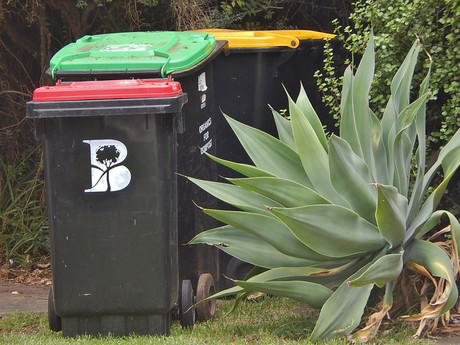Three-bin systems — the new waste reform front

Three-bin waste systems are becoming the norm in many regions of Australia.
Melbourne and Adelaide have moved quickly to standardise three-bin systems for Food Organics and Green Organics (FOGO) services. The NSW Government has funded three-bin systems across NSW, with the biggest uptake of the NSW grants by rural councils. Already 27 councils have taken up FOGO services in NSW.
The key reasons preventing councils from implementing a three-bin kerbside service are uncertainty in respect of: cost to council, cost per household, waste diversion and demonstrable environmental benefits. But these questions can be answered via quantifiable and repeatable economic analysis.
Recently, Bass Coast Shire Council (BCSC) in Victoria engaged MRA with similar concerns over the introduction of a kerbside organics service. MRA performed a full feasibility study, including a quadruple bottom line assessment, to quantify all aspects of the implementation of a FOGO service. The outputs from the study provided BCSC with the information required to make an informed decision in regard to the introduction of such a service.
BCSC historical data was used to formulate the base assumptions for the study. A combination of industrial averages and data acquired from a recent green waste trial performed by BCSC were utilised to model the flow of both garden and food organics through a number of waste management scenarios.
To model the different options, MRA’s Consolidated Cost Model (CCM) was used to quantify all economic and environmental factors associated with waste collection, processing and disposal (total cost, diversion from landfill, greenhouse gas emissions and vehicle kilometres travelled).
A qualitative assessment of governance and social factors was also performed for each option to understand qualitative factors including integration with current waste infrastructure, community acceptability and how the option supports state and council waste policies.
Combining the qualitative and quantitative assessments, MRA was able to recommend a full waste management system to BCSC, which included a three-bin system consisting of:
- 240 L weekly FOGO collection (including kitchen caddies);
- 240 L fortnightly recycling collection; and
- 120 L fortnightly residual waste (garbage) collection.
Overall, this new FOGO system was projected to reduce Bass Coast Shire Council’s annual EPA landfill levy costs by at least $127,000 and reduce annual greenhouse gas emissions by over 2600 tonnes of CO2. The diversion of FOGO would also reduce landfill consumption by 5400 m3 per year.
The additional cost to ratepayers of the new system, compared to the current two-bin system, was calculated at less than $1 per week.
On the basis of MRA’s findings, BCSC went to tender for the system described above. The contract was awarded to Wonthaggi Recyclers, with the final contract price coming within 3% of the CCM estimated price.
BCSC said, “Having MRA undertake a feasibility study gave council an increased level of confidence in their decision-making. MRA’s CCM took into account the parameters council felt were important to consider and the community value, particularly the carbon accounting and net cost benefit.”
Mike Ritchie, MRA’s director, said, “It is pleasing to hear that the CCM has again delivered an accurate representation of the final cost.”
MRA has successfully delivered over 50 projects utilising the CCM for metro and regional councils across Australia. With the ability to tailor the CCM to account for the needs of the client, local waste processing options and technology innovations, MRA has a very accurate tool for modelling and options analysis. Many councils then bundle the options analysis into a broader review of waste management considerations and release it as a draft waste management strategy for public comment. This brings the community on the waste reform journey with council.
For further information, contact MRA at info@mraconsulting.com.au.
Originally published here.
Transforming pill packaging into fencing
The Vinyl Council of Australia is collaborating with several Australian industry partners to...
Eco nappies could release nutrients into the earth
Researchers are developing sustainable sanitary products made from food waste that can either be...
Why private investment is key to a plastic circular economy
To get to a future where plastic circularity is a scalable reality, significant investment needs...











